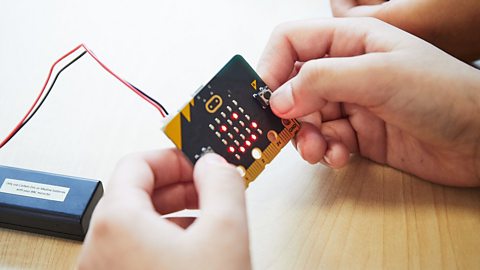It's National Apprenticeship Week! As part of our BBC micro:bit – the next gen campaign, we spoke to apprentices Coel and Matilda and student Lowena about why the micro:bit matters. They told us how the micro:bit has inspired them to follow careers in tech, what they love most about the field and why it's so important for young people to learn to code.
Coel Aspey is a software engineering apprentice working on the user interface for BBC iPlayer on TV, a role that involves anything from minor layout changes to rebuilding the whole interface. This hands-on approach is what attracted him to an apprenticeship.
‘The number one thing for me was that I wanted to start working. It wasn’t that I’d had enough of education, but I wanted to start doing things and solving problems.’
Coel’s interest in tech was sparked at primary school, where he enjoyed finding out how things worked and why problems arose. But it was his introduction to the BBC micro:bit in Year 7 that fuelled this further.
‘The micro:bit was the first point in my life where I experienced technology that I could change, adapt and make my own,’ he explains. ‘It was the boost that really got me into technology. It developed my logical thinking, which led me on to wanting to do software. It allowed me to work with my logical side and creative side at the same time.’
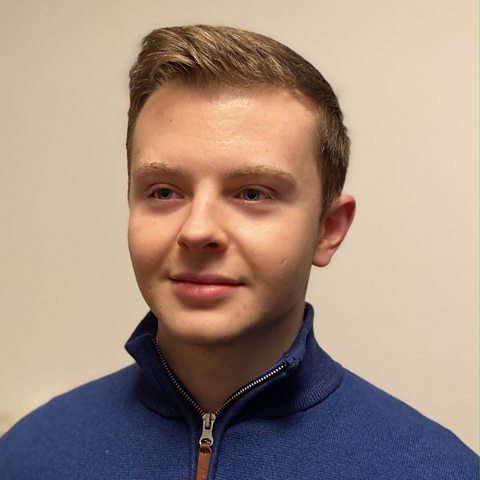
Soon Coel and his fellow computing club members had won the regional round of the Cisco Little Big Awards, a scheme challenging young people to innovate with technology. They presented their concept – the medi:bit – at the national finals.
The medi:bit was a wearable device for people with epilepsy. When the accelerometer detected erratic movement, it sent a radio signal to a base station which alerted the emergency services. The team even created an app to allow remote access to the device.
‘Bumping into problems along the way and fixing them is a highlight of my day,’ Coel says.
Matilda Pringle, an apprentice at BAE Systems, similarly values the first-hand experience her role provides. ‘An apprenticeship allows me to learn from peers who have already made mistakes, and can advise me on how to further advance and problem-solve complex issues in a real world situation.’
When her mum introduced her to the BBC micro:bit at the age of nine, Matilda was fascinated. ‘It really ignited my love for technology, and I became hooked on learning more about how technology is developed and built,’ she explains.
From there, Matilda began to build websites and complete cybersecurity courses, and learned to program in Python. ‘If I hadn’t been introduced to the micro:bit, I would never have considered technology as a path to follow in the future.’
And it’s a path with many possibilities. ‘It’s a great way to give yourself more freedom, by being able to code anything you want and automating mundane tasks that are done frequently. Coding will also allow you to go all over the world – it’s a truly international skill.’
Lowena Hull, a materials science student at the University of Cambridge, has experienced this first-hand. An interest in space launched her into the European Space Agency’s Astro Pi competition when she was in Year 9.
‘The whole idea of space was fascinating to me, and it still is. That interest is what originally made me want to get involved,’ she explains. The competition allows young people to run their code in space using Raspberry Pi computers. That year it involved creating an MP3 player to be used in space, and Lowena’s entry won her age category.
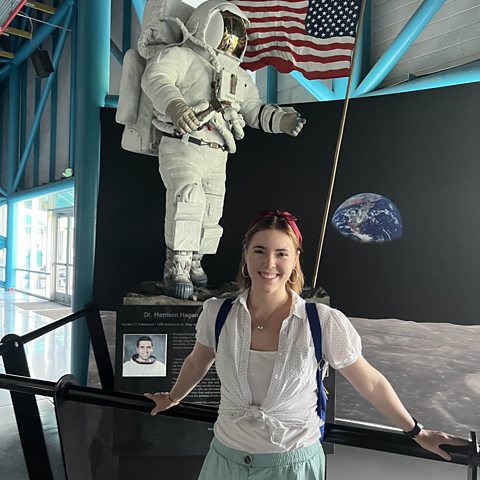
Spurred on by her success, she became involved in outreach, and has spoken at events including the World Summit AI in Amsterdam.
Her first experience with the BBC micro:bit was during lockdown. Lowena volunteered to teach on OpenUK’s Kids Camp, a free ten-week course using micro:bits to teach coding. She became the creative director of the course the next year, and even promoted it at COP26 in Glasgow.
‘I was thrilled, because it meant more content that would teach young people how to code,’ she says. While Lowena chose university rather than an apprenticeship, she agrees with Coel and Matilda on the importance of hands-on experience. ‘I got to see first-hand how the micro:bit can be used to teach people the basics of coding. Using it to demonstrate tricky concepts in a simple and clear way is really helpful.’
She believes the micro:bit – the next gen campaign will show young people the many possibilities within tech, whatever educational path they choose. ‘It’s really important to show kids that tech isn’t a separate thing. We can use it for art, for literature, for all sorts of different things. At primary school there’s more of a focus on the different areas of learning being interconnected, so it’s the perfect age to bring coding in.’
Coel agrees that inspiring the next generation of coders couldn’t be more important, particularly given how many industries now rely on tech. ‘Coding is intertwined in everything we do nowadays,’ he explains. ‘Even if you get started in software, you can go in a lot of other directions. It opens up ideas and job titles you didn’t know existed. The micro:bit is really good for that.’
Primary school teachers can find more information on free training and classroom resources on the BBC micro:bit – the next gen website.

More from BBC micro:bit - the next gen
What's inside the micro:bit box? video
Watch an unboxing video and find out how to get coding in less than 60 seconds.
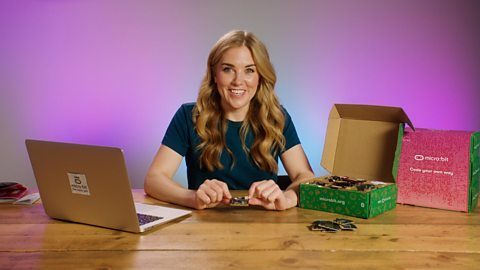
Training resources for teachers
Find out about the free courses - both online and in-person - to help primary schools teach about the micro:bit.
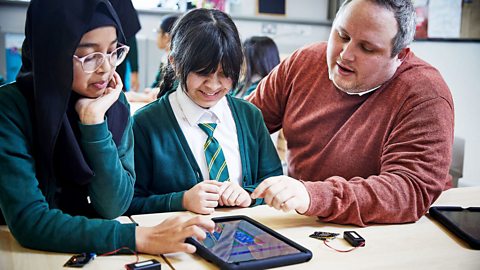
Classroom resources
Check out resources that will help you get ready once you receive your micro:bits.
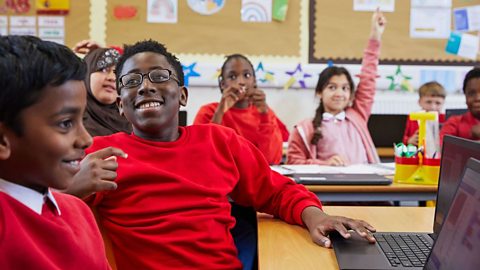
"It's such a nice thing when you find people like you"
Disabled people share their experiences of working in tech and whether they think it's becoming more inclusive.
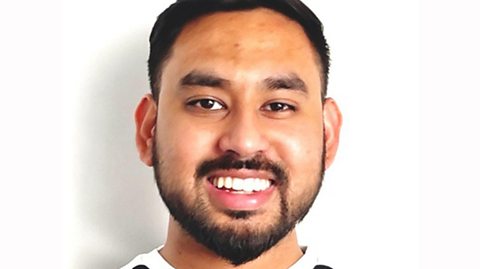
The coding behind the beautiful game at Manchester United
The Premier League club's Head of Data Operations tells us about the role data science plays in football.
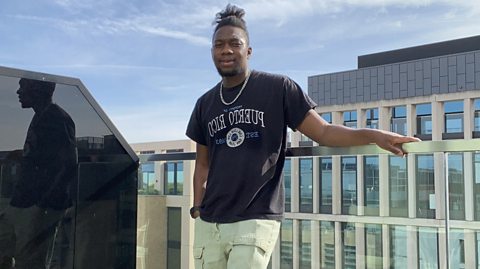
DanTDM on why coding is an important skill for young people
YouTuber DanTDM tells us why he wanted to take part in the BBC micro:bit - the next gen campaign.
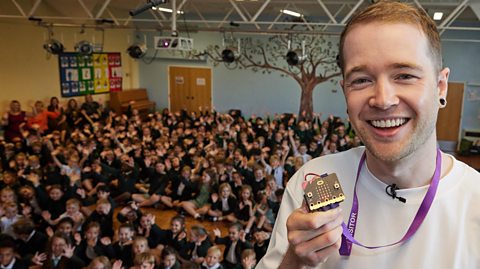
FAQs
Get the answers to all of your questions about the micro:bit.
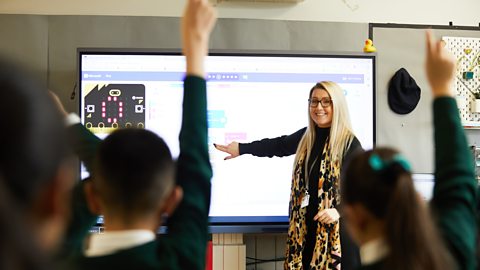
About the micro:bit
Find out everything you need to know about the BBC micro:bit.
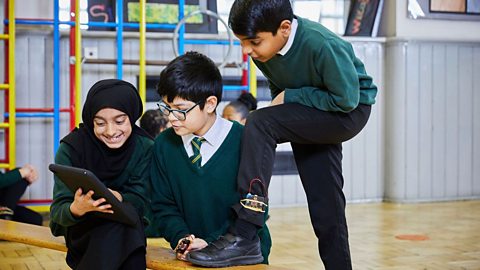
Our partners
Find out more about the organisations supporting our micro:bit initiative.
